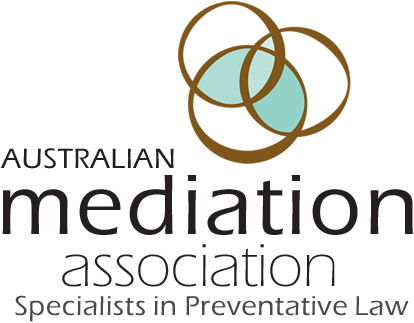1. Legislative Significance and High Demand
-
Under the Family Law Act 1975, couples are required to attend FDR with a registered Family Dispute Resolution Practitioner (FDRP) before applying to the Federal Circuit and Family Court for parenting orders. FDRP-issued section 60I certificates are mandatory to proceed. Mediator Training Academy
-
Because of this legal requirement, experienced and accredited FDR practitioners are in strong demand across Australia, with roles advertised regularly—from Canberra and Hobart to Melbourne and Cairns—offering salaries ranging $90,000 to over $115,000 per year, along with benefits like salary packaging and professional development SEEK+1Jora.
-
Not-for-profits such as Relationships Australia, Better Place Australia, CatholicCare, Uniting, and others are consistently hiring FDRPs in both full‑time and part‑time roles, reflecting stable employment opportunities.
2. Accreditation and Qualification Pathway
-
The CHC81115 Graduate Diploma of Family Dispute Resolution, offered by Mediator Training Academy, is nationally recognized and designed to meet the Attorney‑General’s Department’s accreditation requirementsfor registration as a Family Dispute Resolution Practitioner Mediator Training Academy
-
This qualification is structured to enable graduates to issue the essential 60I certificates, providing direct access to FDR practice in compliance with legislation Mediator Training Academy
-
The course is prepared by an Academic Advisory Board comprising top mediators, educators, and legal authors in Australia, ensuring high‑quality, legally robust content Mediator Training Academy
-
You can study flexibly—100% online and at your own pace—enabling professionals to continue working while qualifying Mediator Training Academy
3. Diverse Backgrounds Welcomed
-
Designed for professionals in law, social work, psychology, mediation, conflict management, counseling, or individuals with significant relevant dispute-resolution experience—all of whom can pursue the Graduate Diploma.
4. Meaningful and Impactful Work
-
FDR practitioners help families through highly emotional and challenging transitions—facilitating parenting agreements, property settlements, financial arrangements, and safety planning, often under stressful circumstances.
-
It’s child-inclusive, trauma-informed, culturally sensitive practice—demanding empathy, negotiation skills, and a deep understanding of family dynamics; practitioners truly make a difference for families navigating separation and divorce.
-
As summarized in a Mediator Academy overview, the career is personally fulfilling, socially impactful, offers professional growth, stability, and the chance to contribute to community resilience Mediator Training Academy.
The Mediator Training Academy CHC81115 Graduate Diploma: A Closer Look
The Graduate Diploma is central to becoming a registered FDRP and includes:
-
Comprehensive curriculum aligned with the Family Law Act 1975 and the FDR Practitioner regulations, covering parenting mediation, property and financial mediation, risk and safety assessments, and child‑inclusive practice.
-
Flexible delivery—fully online or blended, structured to suit working professionals; no need to relocate or pause your work life. Mediator Training Academy
-
Supportive academic oversight from top mediators and educators ensuring practical, evidence-based training. Courses Australia
Once completed, you become eligible to register with the Attorney‑General’s Department as an FDRP, enabling you to practice officially in Australian family law mediation.
Attorney-General’s Department.
Why It’s an Excellent Choice for Professionals
Career Benefits for Practitioners
-
Legal professionals: Extend your expertise beyond court-based advocacy into non‑adversarial dispute resolution. Some lawyers may even pursue accredited specialist status in Dispute Resolution after registering as FDRPs.
-
Social workers, psychologists, counselors: Deepen your capacity to assist clients through separation and parenting law issues. FDR work is a natural complement to therapeutic practice.
-
Mediators and conflict-resolution professionals: Qualify to work in family law mediation—an essential and regulated field.
-
Career flexibility: You may work within agencies (e.g., Relationships Australia), private practice, legal firms, or community organisations. Hybrid, remote, and part‑time roles are common. Salary packaging adds to overall remuneration.
-
As your website references, it’s a fast pathway to becoming an independent, accredited professional with real impact from Day 1.
Social and Community Value
-
You support clients at vulnerable times—helping them achieve constructive agreements, reducing court stress, enhancing child wellbeing, and promoting respectful co‑parenting.
-
FDR practitioners play a vital role in diverting conflict from litigation into collaboration, fostering healthier long-term family dynamics and strengthening society.
By choosing Family Dispute Resolution as your professional path in Australia, you’re entering a field that’s legally essential, ethically rewarding, and professionally stable. The CHC81115 Graduate Diploma of Family Dispute Resolution offered via Mediator Training Academy (in partnership with Mediator Academy and the Australian Mediation Association) is nationally recognized and designed by experts to meet the Attorney‑General’s accreditation standards. It equips you to become a registered Family Dispute Resolution Practitioner (FDRP) capable of issuing section 60I certificates essential in all parenting dispute cases under the Family Law Act 1975
Australian Mediation Association
Attorney-General’s DepartmentCourses Australia.
This career pathway suits a wide range of professionals—legal practitioners, social workers, psychologists, therapists, mediators, and other community professionals—who wish to specialise in supporting families through separation and dispute with compassion, structure, and fairness. The qualification allows flexible online study, accommodating full‑time work and busy lives. It includes rigorous training in child‑inclusive practice, risk assessment, family law frameworks, and dispute resolution techniques—all taught by an Academic Advisory Board of top mediators and educators.
In sum, a career in Family Dispute Resolution in Australia offers:
-
A clear and accreditation-aligned entry via the CHC81115 Graduate Diploma.
-
Legal demand and recognition across family law systems.
-
A wide range of professional backgrounds welcomed.
-
The opportunity to help families through difficult transitions.
-
Stable employment in public, non-profit, or private sectors.
-
Professional gratification, community impact, and ongoing growth potential.


